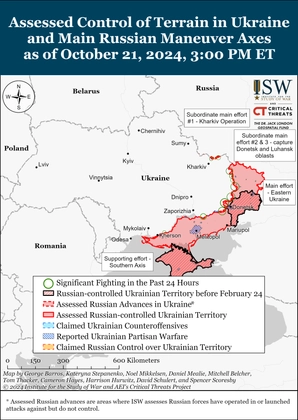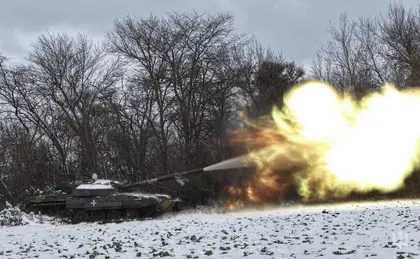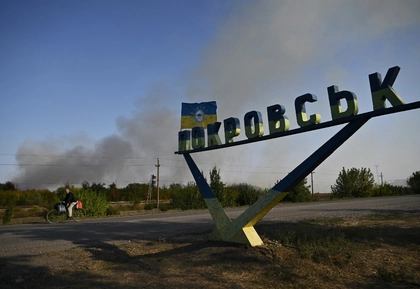Intelligence officers learn early in their careers that perception is not reality; impressions can be manipulated, “alternate facts” can be presented, and what one sees, or is meant to see, can convince the under-informed that up is down, and day is night. As a former KGB operative, Vladimir Putin understands this well – disinformation is a weapon that Russia uses with great skill.
Hamas has publicly acknowledged Russia’s ongoing help. Even as Russian resources were stretched to the breaking point in Ukraine, Moscow diverted important bandwidth by inviting a Hamas delegation to Moscow within days of the Oct. 7, 2023 attack on Israel. Putin has gained directly by Western nations’ attention being diverted from his own faltering war in Ukraine.
The conflict in Gaza grinds on – and has shouldered news of the war in Ukraine from the front pages and off nightly news casts.
Having neatly diverted Western attention, next came the sowing of doubt. Russian sources then inserted the implication that the United States, and the West, would now have to choose between supporting Ukraine or supporting Israel. Though patently untrue, it did not take too long before America’s politicians divided themselves along these lines.
Though the US has military stores in abundance – and more than enough to support Ukraine and Israel – doubting members of the US congress chose to swallow Moscow’s lies, hook line and sinker. To add injury to insult, Congress delayed passing much needed aid packages to Ukraine, and blithely skipped off for an extended Christmas holiday. All of this to the delight of Putin and his FSB information warriors.

ISW Russian Offensive Campaign Assessment, October, 22, 2024
Distractions from the death count
Moscow must distract, and thereby delay Western aid, because their war in Ukraine is going very, very badly.
At Kupyansk, Kreminna, Bakhmut and most notably Avdiivka, columns of Russian armored vehicles have been thwarted by Ukrainian FPV Drone strikes and barrages of anti-tank guided missiles. Despite often massing 5 to 1 superiority at the point of attack, Russian daily casualties routinely approach 1,000 troops killed in action. Total Russian casualties since the full-scale invasion now top 300,000 – six times the number of troops lost by the United States in ten years of the Vietnam War.
Hoping, apparently, to force Ukraine to disperse forces over increasingly larger swaths of terrain, Russia has embarked on a series of piecemeal, uncoordinated company-sized attacks, hitting widely spaced objectives. This tactic continues to puzzle Western military observers, who rightly point out that Russia now appears to be afraid to engage in multi-unit maneuver warfare combinations.
The last time it did mount a large-scale offensive, a multi brigade task element assault on Vuhledar last February, the Ukrainians defeated and destroyed the entire Russian 155th Naval Infantry Brigade – inflicting losses of upwards of 100 infantry fighting vehicles, 46 tanks and as many as 5,000 Russian dead.
In Avdiivika, at the cost of more than 40,000 dead, Russia has managed to advance 1-2 kilometers. Though Russia fails even as it succeeds, Ukrainian valor is being sorely tested. Ukraine is burning through precious supplies of ammunition. With Congressional vacationers not scheduled to return to work before the middle of January, many Western observers are questioning whether Ukraine can be expected to hold back unending Russian attacks.
For now, Ukraine is punishing the aggressor. Russian morale and combat effectiveness is in precipitous decline. South of Kherson, Russia’s 104th Division of VDV paratroopers has been fought to a standstill by something less than 1,000 Ukrainian marines. Morale is a factor in Russian failure. Putin’s troops rightly complain that they are not rotated from the front lines, that they are under-trained, under fed, under supplied, poorly led, and, if wounded, they are left in the field without medical care.
As a result of this maltreatment and the military malpractice of their leaders, Putin’s troops have refused orders, murdered each other and their officers, and almost daily release videos condemning their leadership. In any other army in the world these acts of mutiny would be put down violently and the officers who permitted such conditions would be court martialed. In Putin’s army, these are standard operational conditions.
At sea as on land
Russia’s military failures are not confined to land warfare. Though Ukraine lacks a single major surface combatant warship, it has turned the western Black Sea into a non-permissive environment for the Russian navy.
Utilizing asymmetrical and unconventional warfare Ukraine has sunk the battle cruiser Moskva, the flagship of the Black sea fleet, destroyed the HQ of the Russian navy in Crimea, attacked naval air stations, air defense sites and radar stations, carried out cruise missile and precision strikes on naval yards in Kerch and Sevastopol, destroyed Russian missile corvettes, landing ships and submarines, and, critically, forced the Russian navy to withdraw its warships hundreds of miles to bases in the eastern Black Sea.
This achievement, often overlooked by Western press, has made an impression on naval warfare experts in the West, who rightly see the Ukrainian achievement as an unprecedented and disruptive technological inflection. It is not an understatement to say that Ukraine has literally changed the way navies will fight forevermore.
Russia can’t win
The plain truth is that Russia can no longer win its war in Ukraine. Not with the force posture it has now, not with the tactics and leadership it has, and certainly not with the conscripted army of untrained convicts and mobniks that it is hustling onto the battlefield.
Russia desperately needs to distract the West, from comprehending the actual condition of Russian forces even as it grinds its own army to dust. It is critical at this point that the West continue and expand its support for Ukrainian forces.
Congress’ dereliction came at a particularly bad time. Desperate for “good news” from his 670-day long “72-hour Special Military Operation,” Putin has embarked his forces on a series of large, but poorly executed local offensives. Kupyansk, Bakhmut and Kherson are now the targets of daily assaults, with the city of Avdiivka now the principal object of Russia’s fiercest and most costly attacks. Though daily Russian losses approach, and often exceed, 1,000 troops killed in action per day, with scores of armored vehicles and artillery pieces destroyed.
You can also highlight the text and press Ctrl + Enter






